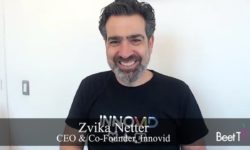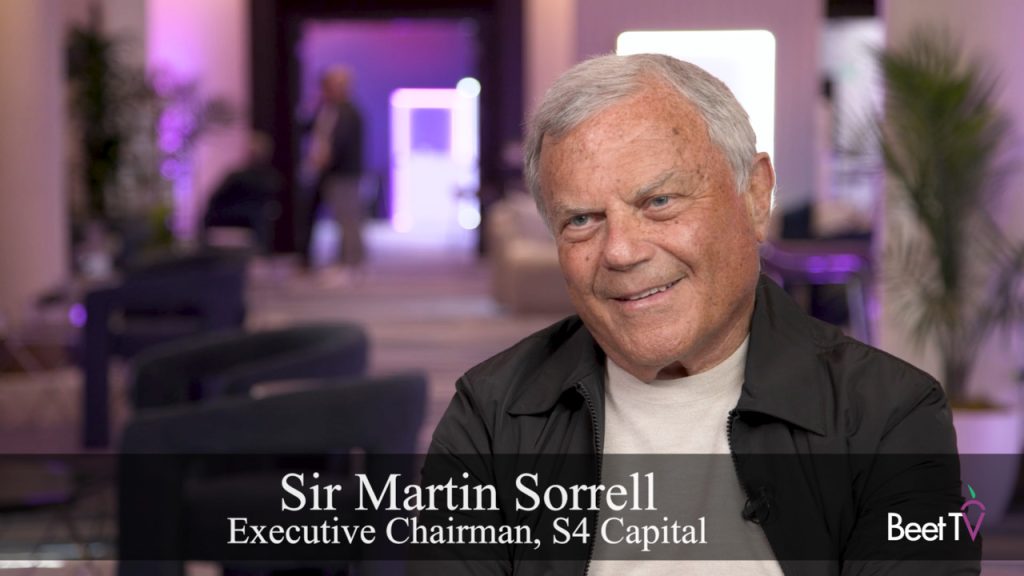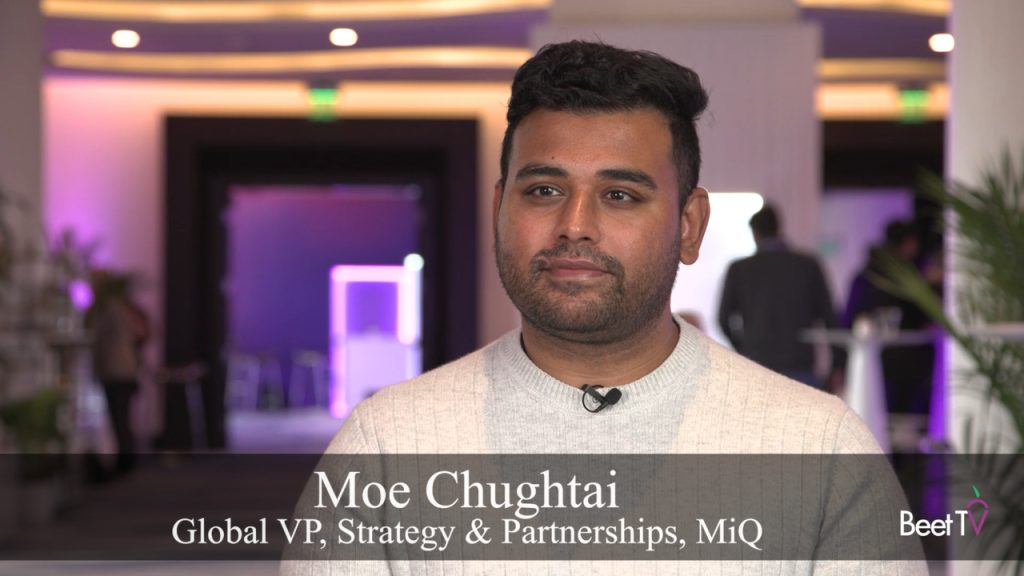After a couple of years of performance anxiety followed by a period of fretting about digital identifiers, ad-tech companies are the darlings of financiers again.
This year, a glut of companies have gone public or otherwise raised new money, thanks to a combination of private equity enthusiasm and the new trend in Special Purpose Acquisition Companies (SPACs), essentially a shell company set up by investors with the sole purpose of raising money through an IPO to eventually acquire another company.
In the last few weeks, Beet.TV’s leadership series “Innovation, Leadership, and Value Creation: Strategies Explored,” presented by Progress Partners, has heard several executives’ views and advice on contemporary ad-tech fundraising.
In this final post in the series, we wrap together many of those viewpoints with our series highlights video. If you only watch one video in the series, make it this one.
1. Taboola relishes public pressure
Adam Singolda, founder and CEO of native advertising and content discovery platform Taboola, said the mechanism of market listing isn’t as important as the rationale.
His company joined the Nasdaq in June after merging with ION Acquisition Corp 1, a SPAC.
Taboola’s Debut As Publicly Traded Company Fulfills Long-Term Goal: Founder Adam Singolda
“It doesn’t matter how you become public,” Singolda said. “The bigger decision, as management and as a board you have to make, is ‘Are you ready and how much you want to be a public company?’
“We’ve been wanting to be a public company for a while. Last year was $1.2 billion in revenue. It’s a $60-plus billion market as an alternative to the walled gardens, but there’s no Shopify for advertising. There’s no company that’s just there rooting for the open web in a win-win way of doing it. So we wanted to be that company. We want to be that company.”
2. Mediaocean sees lively finance options
Mediaocean CEO Bill Wise said running a company is neither a marathon nor a sprint, it’s a relay race. In other words, entrepreneurs need to know when to hand over to someone else. He said that places serial leaders at an advantage.
Vista Partners’ majority stake in Mediaocean was last month sold to two other private equity firms, after Mediaocean acquired Flashtalking.
“There has never been more opportunity for entrepreneurs and figuring out that relay race to get your company from initial idea to product launch, to go-to-market, to start generating revenue, to start scaling the company,” Wise said.
“Right now there’s so much opportunities Private equity firms, venture capitalist. There’s so much wealth being created in big tech. There’s a lot of people now, entrepreneurs turning into investors that want to live vicariously through those investments. So you have a lot of individual investors, you have SPACs, you have IPOs. It’s very dynamic market right now.”
3. Tubi followed an unexpected exit
Streaming TV service Tubi may have sold to Fox for $440 million in 2020 – but founder and CEO Farhad Massoudi said he didn’t set out to exit that way.
Tubi was planning on going public when the idea of a sale was mooted.
VCs Are Looking for Entrepreneurs With Big Ideas: Tubi’s Farhad Massoudi
“We were actively working on getting Tubi ready to go public, and we were raising around and financing,” Massoudi said. “I started talking to Fox and just stars aligned. We had similar visions, they were very supportive, they have been very supportive post-acquisition, and it made a lot of sense for us to use the muscle and the power of a large media company
“In terms of the exit opportunities, there is no right way to do it. Sometimes when the opportunity knocks, you have to either take a serious look at it and if it makes sense, execute on it, which is what we did.”
4. Simpli.fi grew thanks to partner input
Simpli.fi CEO Frost Priloeau said the right early-stage partners can be transformational for a tech company.
Simpli.fi took another private equity investment from Blackstone Group in June, valuing it at $1.5 billion.
Blackstone’s Investment in Simpli.fi Marks Latest Stage of Private Equity Funding
“About three years in, we raised a growth capital round and a company called Frontier Growth down in Charlotte came in,” he said. “(It was) really a fantastic growth investor for us, made us focus on some metrics that we weren’t necessarily focused on really – SaaS-type metrics like net recurring revenue, as well as our NPS score and really set us up for the next stage.
“Then in 2017, the growth investors had seen a good return and they wanted to monetize that return. So we went out and looked at sort of who would be the right owner of the company going forward.
“We talked to strategics, but we really hit a great place where we were introduced to a private equity firm named GTCR out of Chicago. They acquired the company along with management in 2017, and they have been really a fantastic partner for us, really helping us build the foundation to grow the company to the next stage.”
5. Innovid keeps focus through finance
Connected TV enabler Innovid’s CEO Zvika Netter said his company has benefitted from finance partners including Genesis, Sequoia, New Spring and Goldman Sachs. But making it through is about a consistent vision, he said.
Innovid recently said it plans to go public to raise $403 million in a deal valuing the business at $1.3 billion.
https://www.beet.tv/2021/06/here-to-stay-innovid-ceo-netter-does-ipo-to-put-ctv-vision-in-public-gaze.html
“You need to have vision, you have passion and it’s about delivering,” Netter said. “So the vision is – it was always the same – we’re here to change the future of TV advertising.
“Obviously, when you raise money in 2008, ’10, ’12, ’17, and the latest one was 2019, the vision stayed the same, reality keeps changing. So you have to keep adjusting to where reality is right now.”
6. Progress Partners sees PE beat SPAC
Progress Partners founder Nick MacShane said it is important companies think of SPAC as just one path, not the only path, to exit.
Progress Partners, an M&A advisory, has been advising a wave of ad-tech companies lately and recently closed a venture round of its own.
Ad-Tech M&A Is Back, Thanks To SPAC: Progress Partners’ MacShane
“The financial buyers are actually looking much more competitive than some of the larger strategics right now,” MacShane said.
“Coming out of COVID, some of the large companies are still struggling with their own businesses and restarting their engines, whereas the private equity is poised and ready to jump in, so you’ve seen some of the larger deals that people thought were going to SPAC have now turned over into private equity.”
7. PubMatic warns against over-financing
PubMatic CEO Rajeev Goel said it is important for companies not to raise more money than is needed.
PubMatic had raised around $16 million before its IPO in December, when it jumped 50% in value.
VC Relationships Are Formed With People, Not Firms: PubMatic’s Rajeev Goel
“You see these huge raises of $200, $300, $400 million,” Goel said. “Sometimes they’re warranted, but in many cases it’s before the company has figured out its core unit economics and things like that.
“That’s a real danger because, if you don’t grow into that valuation that’s implied by that level of fundraise … that can be a real handicap where now a company may not be able to raise any more money. That’s the kind of thing that can put you out of business.”
8. DoubleVerify’s IPO is not the end
Although an IPO is an “exit”, DoubleVerify CEO Mark Zagorski said it should not be viewed as the end point but, rather, part of the journey.
DoubleVerify listed in the stock market in April, raising $360 million, with shares jumping at open.
Investors That Offer Strategic Advice Are Best Partners: DoubleVerify’s Mark Zagorski
“The IPO provided us with lots of capital that we can continue to use to invest and grow on our mission to create a stronger, safer and more secure digital advertising ecosystem,” Zagorski said.
“IPO was a pretty obvious route for us because of what that mission is all about, and that mission is driven by a drive to create greater transparency in the ecosystem. What better way to represent transparency is to go public and make ourselves transparent?”
You are watching “Innovation, Leadership, and Value Creation: Strategies Explored,” a Beet.TV leadership series presented by Progress Partners. For more videos, please visit this page.


































